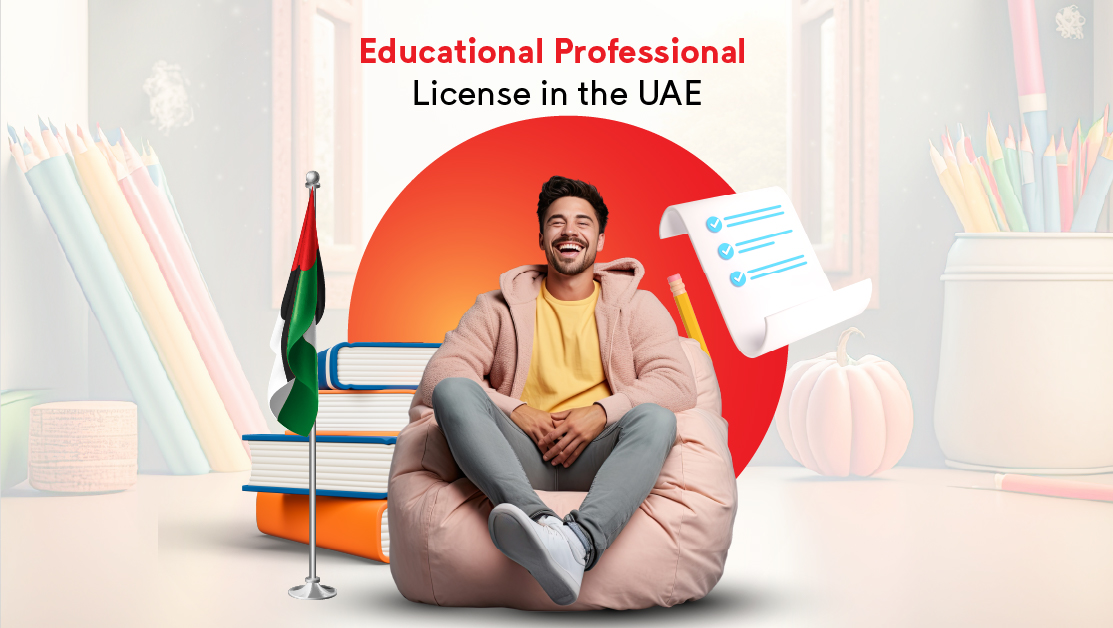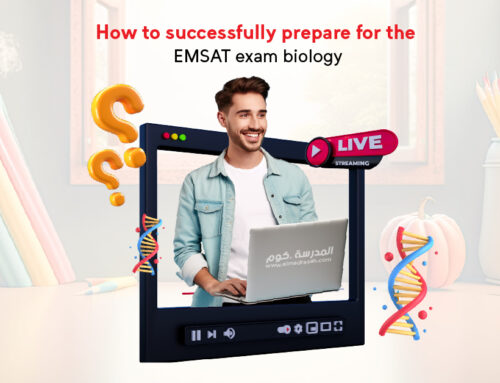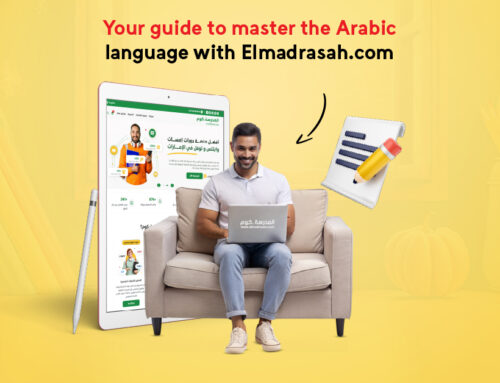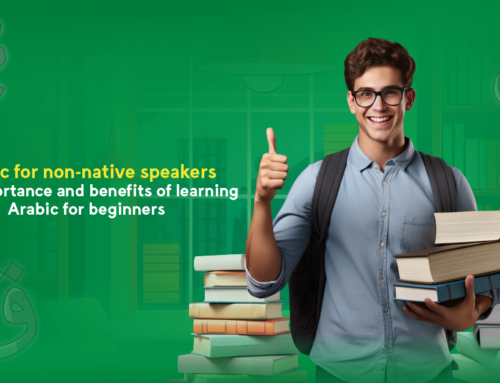
Educational Professional License in the UAE is one of the most important legal documents that teachers must obtain. These licenses aim to ensure the quality of education, qualify teachers, and ensure that they meet the professional standards required in the field of teaching. Educational professions licensing systems depend on passing qualifying tests that determine the level of competence and skills of the teacher. This system includes general professional tests that focus on methods and methods of learning and teaching, in addition to specialized tests in each subject taught, and this is what we will learn in this article about the qualification indicators for educational leaders, early childhood teachers, Islamic education teachers, and physical education teachers.
Educational Professional License in the UAE
To obtain a license for teaching professions in the UAE, teachers must pass a professional exam and a specialized exam. Here are the requirements to obtain each:
Professional test:
- It focuses on the methods and methods of learning and teaching students.
- Includes diverse content about teaching, assessment, and professional development.
Specialized test:
- Dedicated to each subject taught.
- It requires experience and in-depth knowledge of the subject and its teaching methods.
By passing these exams, teachers can obtain a teacher’s license in the UAE and begin practicing the teaching profession legally and qualified.
Qualification tests for educational leaders and their evidence
Qualification tests for Educational Professional License in the UAE leaders aim to qualify educational personnel to assume responsibility for leading schools and applying best educational practices. These tests include a section that focuses on administrative skills and a section that deals with strategic planning and innovation in the school, as follows:
The first criterion is professional and ethical leadership
This standard of qualification tests for educational leaders to obtain An Educational Professional License in the UAE includes the following:
- Demonstrate commitment to the heritage and cultural values of the UAE.
- Demonstrate personal and professional ethics of integrity, respect and fairness.
- Manage self and relationships with stakeholders, ensuring communication in a professional and effective manner and adhering to ethical principles.
- Building a cohesive professional learning community and promoting accountability to improve learner achievement.
- Develop collaborative relationships with all key stakeholders to improve and sustain the learner experience.
- Promoting learners’ interests and achievement and setting high expectations for the performance of learners, teaching staff and other educational leaders .
The second standard: strategic leadership
This standard includes motivating and engaging stakeholders to activate an institutional vision that is in line with the UAE’s vision and international best practices. Participation in an institutional review that informs strategic planning. Identify school improvement plans and professional development programs and prioritize them. Highlighting the importance of information and communications technology in education.
Third standard: educational leadership
This standard of qualification tests for educational leaders to obtain an Educational Professional License in the UAE includes the following:
- Demonstrate comprehensive and up-to-date knowledge of relevant national and international curricula and learning standards.
- Demonstrate knowledge and understanding of how to apply best practices in teaching and learning to improve learner achievement.
- Set high expectations and monitor and evaluate the achievement of learning objectives.
- Creating a successful learning culture that enhances learners’ effectiveness, enthusiasm, and interest in the job and provides independent learners who are ready for the next stage.
- Promoting citizenship and responsibility in the context of the UAE and facilitating a global digital society.
- Establish and evaluate school-wide systems to provide consistent, coherent and valid assessment.
- Understand and enhance the various types of assessment and their application.
- Understand and promote the use of technology in teaching and learning.
- Enhance additional learning support to meet individual needs.
- Participate in developing professional leadership in the use of communication and information technologies.
Fourth standard: Operational leadership
This standard includes the application of legal requirements and policies throughout the school. Ensure that the day-to-day management of the school is effective and that it leads to a culture of positive behavior and high expectations for the school community as a whole. Identify and empower the teaching team to organize and manage human, material and financial resources within the school to ensure the provision of a safe, learner-centered learning environment.
Qualification tests for early childhood teachers and their evidence
Qualification tests for early childhood teachers aim to qualify teachers to deal with children at an early age and provide appropriate educational experiences for their development. These tests include a section that deals with developing children’s general skills and another section that deals with learning methods and technology in early education.
The specifications of these qualifying tests for early childhood teachers to obtain a teaching Educational Professional License in the UAE include the following:
First standard: child development
Early childhood teachers have sufficient knowledge about the developmental manifestations and characteristics of children from birth to eight years of age. They can also employ this knowledge in organizing the environment for caring for and learning children in an atmosphere of respect and justice, and in implementing and designing related activities. In addition to their knowledge of early childhood development theories and their educational applications.
Second standard: Observation, documentation and evaluation:
Early childhood teachers demonstrate adequate knowledge and familiarity with appropriate strategies and tools; To observe the manifestations of development in the different stages of growth in children, and to detect children with learning difficulties and those who are gifted, teachers realize the following:
- Assessment tools and purposes in order to align assessment with teaching objectives, activities and curricula.
- Understands how to collect information from parents’ observations about their children.
- Writes classroom observation reports objectively and supported by evidence.
- Possess sufficient knowledge of assessment to meet the different educational needs of children .
- It provides a range of diagnostic, formative and summative assessments for children.
- The cultural diversity of children is taken into account when designing assessment tasks.
- He follows up with the support teacher of children with special educational needs on their assessment and progress.
- Uses assessment information to adapt instruction to meet the needs of all children.
- Convey information related to the evaluation to parents and other professional colleagues.
Third Standard: Developmentally Appropriate Practices:
This standard includes qualification tests for early childhood teachers to obtain an Educational Professional License in the UAE:
- Early childhood teachers carry out pedagogical and learning practices that are consistent with the developmental characteristics of the stage they care for or teach.
- They also demonstrate a deep understanding of how to develop reading, writing and numeracy skills, and how to teach different academic subjects so that they are linked to real-life experiences of the child.
- Analyzes curricula and makes appropriate modifications that include enrichment and harmonization.
- Developing methods for integrating subjects in accordance with the educational policy followed in the country.
- Applies effective educational practices and develops teaching and learning programs that are compatible with the child’s developmental stage.
- Able to carefully regulate the indoor and outdoor environment, taking into account children’s physical and emotional quality of life.
Fourth standard: Parents, colleagues and society:
Early childhood teachers are responsible for conveying information about the learning process to the family and community. Early childhood educators also reflect a high level of professionalism, as well as the ability to maintain a positive relationship with families and communities.
Fifth standard: Learning through the curriculum:
Early childhood educators know national learning outcomes, international standards, use innovative research-based practices and effectively implement curriculum for children from birth to age eight. This standard of Educational Professional License in the UAE includes the following:
- The teacher understands the language development of children from birth to age 8.
- Applies various strategies to teach listening skills.
- He designs activities to develop children’s listening skills, such as: learning new vocabulary, interpreting vocabulary, linking the heard text to pictures, arranging events in a logical sequence, and using vocabulary in useful sentences.
- Employs speaking skills with children; to develop certain aspects, such as: the intellectual, linguistic, and interactive aspects.
- Designs educational activities to apply the stages of the speaking process, such as: arousing interest, thinking, formulation, and pronunciation.
- Plans to apply conversation teaching strategies, such as: discussion, debate, role-playing, describing specific events, talking about a picture, telling a story, asking questions, free conversation, giving a speech for a specific occasion, using imagination, etc…
- Explores methods of teaching reading.
- He designs activities that raise the level of children’s readiness to learn the reading skill in various aspects, such as: mental, physical, emotional, social, and linguistic aspects.
- He plans to teach the skill of analyzing word sound, and the skill of combining sounds and syllables to form words, using strategies and activities that are most appropriate to the skill from the components of reading.
- It employs the most appropriate methods to train children to draw letters in their various shapes correctly.
- He uses the most appropriate teaching methods to train students to write word segments correctly.
- Uses appropriate strategies to teach children to distinguish between parts of speech (noun, verb, letter).
- Trains children to use interrogative tools correctly.
- Understands mathematics concepts, processes and skills, and how to facilitate children’s mathematics learning.
- Mathematics applications employ technology and tools to support children’s learning.
- Understands science concepts and skills and how to facilitate children’s learning of science.
- Demonstrates an understanding of the ways in which social studies concepts and skills are integrated and how to facilitate children’s learning.
- Health and physical activities and how to facilitate children’s learning about these activities.
- Understands music, drama, creative movement, dance, visual arts and how to facilitate children’s arts learning.
Sixth standard: Professional and ethical behavior:
This standard includes qualification tests for early childhood teachers to obtain an Educational Professional License in the UAE:
- Early childhood educators demonstrate their commitment to the values, heritage and culture of the UAE, and to personal and professional ethics.
- Shows respect for diversity in the school community, including cultural diversity.
- He also demonstrates high personal ethics and professional behavior. Ensures the proper upbringing of children without any psychological harm.
- He also cooperates with parents and colleagues to achieve the maximum possible benefit for children. It applies the laws and regulations in force in the emirate and the country.
Qualification tests for Islamic education teachers and their evidence
Qualification tests for Islamic education teachers aim to qualify teachers to impart Islamic knowledge and values to students. These tests include a section that deals with teaching the Qur’an and Sunnah and a section that deals with the importance of morals and Islamic values in Educational Professional License in the UAE. The teacher must be able to:
- To demonstrate knowledge of Islamic jurisprudence and its principles, including jurisprudence of worship, purity, prayer, zakat, fasting, and Hajj.
- To have sufficient knowledge of the jurisprudence of transactions.
- It shows knowledge in the Holy Quran and its sciences.
- Shows knowledge of the noble Prophetic hadith and its sciences, and shows knowledge of the biography of the Prophet – may God bless him and grant him peace – and the moral aspects of tolerance and coexistence.
- He must also demonstrate knowledge of Islamic doctrine and logic.
Qualification tests for physical education teachers and their evidence
Qualification tests for physical education teachers aim to qualify teachers to teach physical and sporting activities to students. These tests include a section that deals with developing students’ motor skills and a section that deals with planning sports programs and teaching strategies. As follows:
The first axis: Principles of physical education about fitness and body systems
This field measures the examinee’s knowledge of the basic theoretical principles related to physical fitness and body systems, such as: anatomy, physiology, psychology, health and fitness-related skills. The examinee must be able to:
- Theoretical knowledge of the most important body systems related to health, sports, physical and athletic performance, and their growth.
- Demonstrates knowledge of the circulatory, respiratory, musculoskeletal, digestive, nervous, and endocrine systems, and demonstrates an understanding of the functions of each.
- Analyzes the importance of maintaining an optimal nutritional balance for personal health and physical performance.
- Analyzes the positive and negative effects of lifestyles in relation to sleep patterns.
- Knows the factors that prevent physical injuries resulting from physical activity.
- Demonstrates knowledge and understanding of psychological conditions and social principles and their impact on healthy physical activity and athletic performance.
- Evaluates reasons for decisions and options for actions when solving movement challenges.
- Demonstrates an understanding of leadership concepts and styles that apply to sporting roles, including but not limited to: player, referee, coach, teacher.
- Evaluates the effects of intrinsic and extrinsic motivation on physical activity participation in a range of contexts.
- Demonstrates knowledge and understanding of laws and safety regarding participation in physical activities.
- Know and understand the importance of the processes used in problem solving among individuals participating in physical activities.
- Analyzes the strategies used to manage emotional responses of participants in physical activities to situations and behaviors.
- Demonstrates knowledge and understanding of movement principles and their impact on physical activity and athletic performance.
- Demonstrates knowledge and applies understanding of motor sequences related to spatial awareness, direction of force, path, plane, and speed.
- Analyzes program design principles and training effects over a long period of time.
- Demonstrates knowledge to design personalized fitness programs, physical activity and nutritional goals and monitor progress.
- Evaluation of fitness tests to measure and track health and physical activity related to components of fitness.
- Analyzes personal fitness profiles; To track results in order to improve health and physical performance.
The second axis: Acquiring sports skills by following physical activity policies and procedures
This field measures the examinee’s knowledge and abilities in designing and explaining technical aspects, and mastering the acquisition of skills in a range of individual and team sports. The examinee must demonstrate knowledge and understanding of strategies and policies that support healthy behaviors and emphasize health promotion skills for all.
In conclusion, after knowing all these indications for the qualification tests for early childhood teachers, educational leaders, Islamic education teachers, and physical education teachers, to obtain an Educational Professional License in the UAE, you can obtain the best training courses to prepare for these tests, comprehensive and integrated preparation with elmadrasah.com platform, with a lesson at the hands of trainers. Specialists in educational licensing tests, direct individual courses to achieve maximum benefit.















